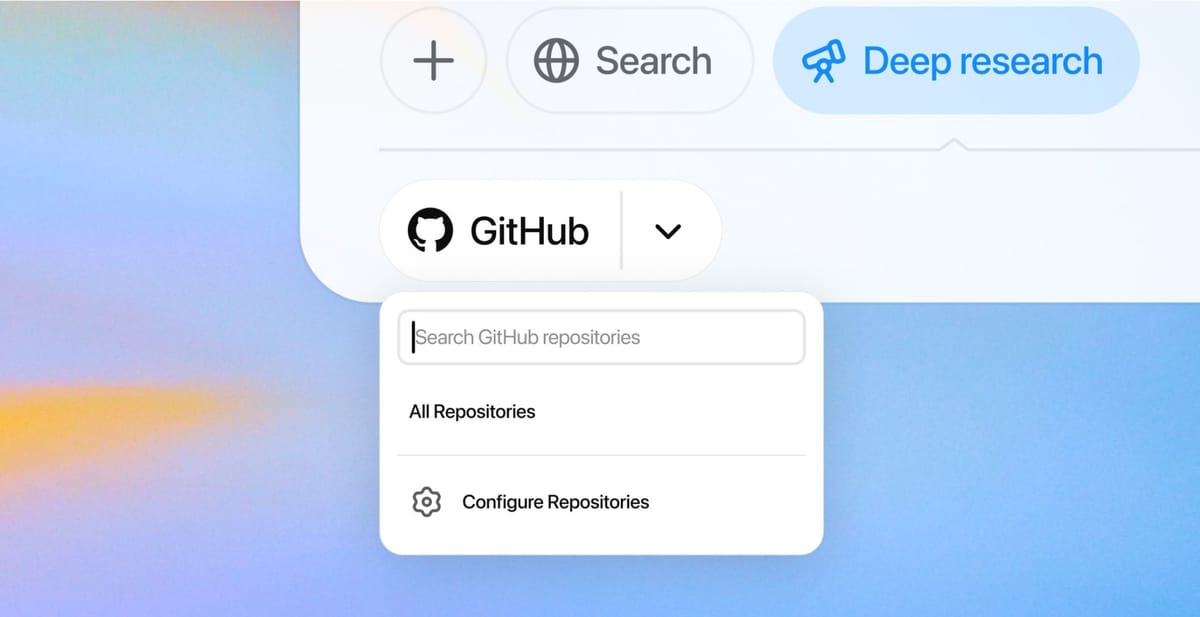OpenAI has just announced its first "deep research connector" for ChatGPT, bringing GitHub integration to the popular AI assistant. The new feature lets developers connect their code repositories directly to ChatGPT, enabling the AI to sift through codebases and engineering documentation to generate comprehensive, cited research reports.
Key Points:
- ChatGPT can now analyze GitHub repositories to help understand and document code
- The feature respects existing GitHub permissions and only accesses authorized repositories
- Available now for Plus, Pro, and Team users, with Enterprise access coming soon
This will make ChatGPT even more useful for technical teams by allowing them to tap into the very systems they're building. Rather than asking general coding questions in the abstract, developers can now prompt ChatGPT to analyze their actual projects — whether that's understanding implementation patterns, breaking down product specifications into technical tasks, or creating documentation for onboarding.
"I often hear that users find ChatGPT's deep research agent so valuable that they want it to connect to their internal sources, in addition to the web," said Nate Gonzalez, Product Leader at OpenAI, in a LinkedIn post announcing the feature.
For organizations concerned about security, OpenAI emphasizes that the connector respects existing permissions structures. ChatGPT will only access repositories that administrators explicitly authorize, and it honors the GitHub permission settings already in place — meaning users can only see content they would normally have access to.
The GitHub connector follows last month's launch of integrations for ChatGPT Team, which included connections to tools like Google Drive. This essentially allows ChatGPT to seamlessly pull relevant context from all the platforms where knowledge typically lives in organizations — whether that's documents, spreadsheets, or now, code repositories.
For developers, the practical applications are immediately apparent. The connector could help teams implement new APIs by finding real examples in their codebase, break down product specifications into manageable technical tasks with proper dependencies mapped out, or generate summaries of code structure and patterns — particularly valuable for onboarding new team members or creating technical documentation.
The rollout is beginning with ChatGPT Plus, Pro, and Team users over the next couple of days. Enterprise and Education customers will need to wait a bit longer, though OpenAI indicates their access is "coming soon."
This integration comes at a time when developer tools are increasingly incorporating AI assistance. GitHub itself has been pushing its own Copilot offerings, while numerous IDE plugins and coding assistants have flooded the market. Earlier this week, Bloomberg reported that OpenAI agreed to purchase Windsurf (one of the popular AI coding platforms) for $3 billion.
Expect to see more specialty connectors soon—think design systems in Figma, database schemas in AWS RDS, or project tickets in Jira—further blurring the lines between tools and intelligence.

